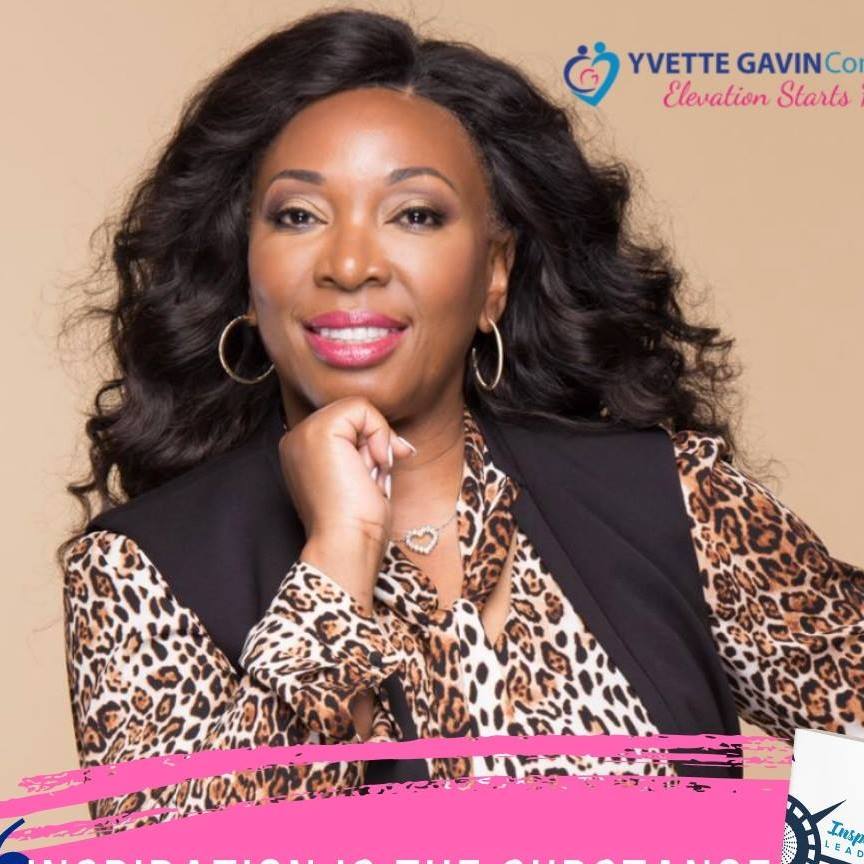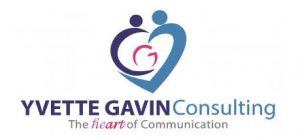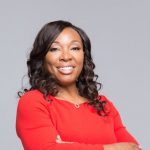

 International speaker, Yvette Gavin is the Founder and Chief Learning Officer of Yvette Gavin Consulting, a leadership and career development firm. A graduate of Oral Roberts University and a certified John Maxwell coach, trainer and speaker, Yvette has a solid track record of teaching others how to elevate their careers and organizations.
International speaker, Yvette Gavin is the Founder and Chief Learning Officer of Yvette Gavin Consulting, a leadership and career development firm. A graduate of Oral Roberts University and a certified John Maxwell coach, trainer and speaker, Yvette has a solid track record of teaching others how to elevate their careers and organizations.
Her client list consists of but not limited to Ernst Young, the U.S. Consulate in Brazil, and the Georgia National Guard. A former newspaper report for the Atlanta Journal-Constitution, blogger for Black Enterprise, and IT Director at Cbeyond, Yvette is an accomplished author who enjoys traveling the world with her husband of 30+ years.
Connect with Yvette on LinkedIn, Facebook, Twitter and Instagram.
Show Transcript
Intro: [00:00:04] Broadcasting live from the Business RadioX studios in Atlanta, Georgia, it’s time for GWBC Radio’s Open for Business. Now, here’s your host.
Lee Kantor: [00:00:18] Lee Kantor here. Another episode of GWBC Open for Business. And this is going to be a great one. We have with us today Yvette Gavin with Yvette Gavin Consulting. Welcome, Yvette.
Yvette Gavin: [00:00:30] Hi, Lee. It’s a pleasure to be here.
Lee Kantor: [00:00:32] Well, I’m excited to learn more about you and your firm. Tell us about how you’re serving folks.
Yvette Gavin: [00:00:37] So, I’m helping people advance their careers and grow their team through leadership training, personal development type training, and one-on-one coaching.
Lee Kantor: [00:00:46] So, how’d you get in this line of work?
Yvette Gavin: [00:00:48] Well, so, I started way back in like 1999 working with a group of women, just helping them develop from a spiritual perspective. That sort of poured over into my corporate work. So, as I began to grow and move up the ranks in corporate, people start asking me, would I coach them, asking me for advice. And I said yes. And it just blossomed from there. From having a heart and caring about others, other people’s career as a mentor, really, I later transitioned out of corporate, and I started my own firm where I’m actually more, in an organized way, teaching others how to advance their careers and helping companies grow their leaders, so those leaders can actually grow their team.
Lee Kantor: [00:01:40] Now, regarding leadership training, is leadership something that can be taught, or is that something that people are just born with?
Yvette Gavin: [00:01:49] 100%, it can be taught. Now, I do admit that there are some people who seem to have a natural bean thought leadership, but just because you didn’t come into this world with a desire to lead doesn’t mean that you don’t have the ability or you can’t learn how to be an effective leader. I’m teaching people every single day how to do just that.
Lee Kantor: [00:02:13] Now, how do you start with somebody who maybe doesn’t see themselves as a leader, but they’ve been told, “Hey, we need you to step up here,” but they don’t maybe have the self-confidence or maybe they have some limiting beliefs based on the way they grew up? How do you kind of get them to open the eyes to the possibility that they can step into a leadership role?
Yvette Gavin: [00:02:35] I think the training in itself does that because once you start working with someone who doesn’t see themselves there yet, but others do, I’ve worked with people like that. It is helping them to understand why others see it because what I like to do is help people to see their own value. Regardless of whether they are an extrovert or an introvert, we each have value. I like for people to focus on what they’re already good at. So, we start on a strong point with a strength bar. Typically, if I approach you to move into leadership, I see you as a subject matter expert in perhaps something technical. So, learning the softer skills of how to develop other people and how to lead strong is something I can teach you.
Yvette Gavin: [00:03:20] So, for instance, I have a program that we refer to as Leadership Foundation. So, we’re teaching others just the core things that are necessary for a leader, how to be concise, how to really bring people together from a diverse background and lead them, how to become comfortable with leading someone who may know a little bit more than you. All those things can be taught. And you’re right, Lee, it is all about the mindset, how that person would view themselves. And I believe as we learn new tools, it strengthens our confidence and allow us to lead strong.
Lee Kantor: [00:04:00] Now, do you see anything maybe from a generational standpoint? I don’t know if you’re watching this now, but there is a special about Michael Jordan’s last year in the NBA in his career. And at the time that that was going on, some of the coaching they were showing is kind of that yelling at someone, I’m the boss, this is how we do things. And it seems like when you’re looking at it through today, the lens of today, that maybe there’s different strategies and techniques to get through to people that maybe people wouldn’t respond in the same manner today than they would whether that’s like 20 or 25 years ago? Are you seeing a difference in terms of when you’re trying to lead in a generational kind of standpoint?
Yvette Gavin: [00:04:47] I see it more, not so much as a generational standpoint, but more as an industry. So, for instance, I do a lot of work with the Georgia National Guard or I have in the past. So, the way I work with a member of the armed forces is totally different than how I necessarily will work with a recent college graduate or a first-time manager who may be in his or her 20s. But it’s not so much because of the age, it’s more about the industry. So, I work a little differently with people because of the environment, is what I’m saying. It’s why I see a need.
Yvette Gavin: [00:05:25] Now, what I won’t say, a lot of my work has been with women. And I definitely see a general … I mean, a gender difference. Honestly, I do. Now, not all women are like this, but the majority of the women that I’ve had the pleasure of working with would be totally put off if I began to elevate my voice as I am trying to walk them through a concept of trying to shift the way that they think; whereas, if they’re on the military base, people expect that from me. They expect for me to be stern. Even the women. So, I look at it more of an industry thing. It’s understanding my audience who I’m talking to and what will work there.
Lee Kantor: [00:06:07] So, that kind of reading the room, like what’s appropriate in one environment may not be appropriate in the other, and a good leader is able to kind of make those adjustments.
Yvette Gavin: [00:06:17] Exactly, yeah.
Lee Kantor: [00:06:19] So, now, when you’re doing some of the work that you do in terms of executive presence, can you talk about how important that is if you want to kind of move up the ladder or really grow as a business person?
Yvette Gavin: [00:06:33] Yes. To me, I believe it is everything. It is really what set them apart. I would refer to as people who are average apart from those who are excellent in their field. So, executive presence consists of three key components. It’s the way we talk, it’s the way we look, and it is how we show up every single day. Now, I work with people who were strong technically, they knew their stuff, but they weren’t able to actually get that next promotion. When I say next promotion, it is getting above a manager’s role where they become directors, vice president, and then, of course, the C-suite.
Yvette Gavin: [00:07:17] People usually get there because they have great EP. They have excellent emotional intelligence. They know how to relate to people. They show up every day looking like that person who really is in charge, and they know how to relate well with others. So, executive presence, in my mind, is that element that sets people apart. And I believe, especially when we’re talking to our women, one of the things I hear from clients is that, “I know I’m better than.” And they’re usually referring to someone that isn’t a role above them. And I’m like, “Okay. If you are better, if your skill set was stronger, why did you think he or she got the promotion and not you?” For me, it typically takes me back to working with them and some or one of those three components of executive presence.
Lee Kantor: [00:08:11] Now, was there-
Yvette Gavin: [00:08:11] When I look at it … sorry. Go ahead.
Lee Kantor: [00:08:14] Can you share maybe some advice or some low hanging fruit that a person can improve on, so they can show more executive presence?
Yvette Gavin: [00:08:26] Yes, I sure can. People, typically, don’t like to hear this one. And it is the lowest of the three, but one of those things is how you look, honestly. And I’m not talking about looking like a movie star. I’m talking about showing up polished and doing it in a way where it becomes your brand. That when you show up, you’re that way each and every time. I’d give you an example. When I was in corporate, I was an IT director. One of the VPs actually came to me and asked me if I would mentor an individual within the organization. She wasn’t in my organization. She was, then, a peer. And this is what he said to me, “She had very high potential. I can really see her being the interface between IT and the business. But her physical appearance,” and I was like, “Okay. What’s wrong with her physical appearance?”
Yvette Gavin: [00:09:22] We could not, we could not, and I’m going to say it again, count on any consistency in how this woman looked each day. One day, the hair was red. And this is no joke. And I know people I’ve shared this before, people are like, “Are you kidding me?” No, I’m not kidding you. If anyone think that their physical appearance doesn’t weigh in on what others perceive them and receive them, then they’re fooling themselves.
Yvette Gavin: [00:09:49] The other mistake that she was making in her appearance was that she was showing too much cleavage in a corporate environment. I always tell my clients, we must understand the environment, and you must understand that environment, you must get in the environment before you can change the environment. And I want to say that again, you must be in the environment. You’ve got to be on the field playing if you’re going to actually change any part of the play.
Yvette Gavin: [00:10:16] So, I have a young lady say to me, “Well, I should be able to wear what I want to wear.” Yes, you should when you own the company, when you have all the money you need to run the company, because executive presence is also a key element in being able to get investors. We see it on Shark Tank all the time. Many times they say, “I’m not investing in your company or your idea. I’m investing in you as the individual.” It’s based on their story and based on the way that they presented themselves in that moment in time. So, physical appearance, and how you show up, and how you dress, and how you present and carry yourself. That has nothing to do with weight, skin color. It is about how you choose to brand your physical image. And that is the lowest of the three, I would say.
Lee Kantor: [00:11:05] Now, is that something that you see that sometimes people maybe they make excuses or they play kind of this victim role that this is being done to me and focusing in on the things that maybe they can’t control at that stage yet, and then say that, “Oh, if this world existed in this manner, then I can then make a difference,” and they’re they’re kind of setting themselves up for failure when, really, there’s a lot of things they can control. And like you say, you can’t influence the game if you’re not in the game. So, how do you kind of help them work through that mentally? Because I can see that as being a roadblock for a lot of people. They can’t get out of their own way. They self-sabotage.
Yvette Gavin: [00:11:49] You’re absolutely right. I hear that all the time. And it’s always about what someone else is doing versus what they are doing. And so, what I try to help people to understand, if you are making a decision that you want to be in this arena, then understand the rules there first. You must know that. It’s like my son played soccer, and he got a scholarship in college. He played at UCLA. If my son had taken the rules of American football and taught to apply them to soccer, he would have never been able to advance and earn a scholarship to play, actually, on that level. It is understanding what is expected. Then, once you’re there, then you can start trying to shape policy, rules and regulations. But you gotta understand what it takes to even get in.
Lee Kantor: [00:12:45] Well, Yvette, in your career, has there been any moment that’s been rewarding or a story you can share that maybe you’ve had an impact, and you realized that this career does really impact people’s lives, and it helps them in their careers?
Yvette Gavin: [00:12:59] I have several, but there’s one in particular that stands out to me. And it was the young lady that I had an opportunity to coach. She had been on her job for 10 years, and she had tried on her own to get promotions within the organization, and it just didn’t happen for her. She, then, began to look for a job outside of her current company, and it didn’t happen. And so, that led her to seek a career coach. Within three months of working with her, we were able to help her land her ideal position at her number one choice of a company. She moved from making about $72,000 to $170,000. That’s almost three times a person’s income. Three times. It was so rewarding because when you move from $70,000 to $170,000, it literally changed her life. And it’s a life changer. She is still to this day at that particular company and has actually been promoted twice since she’s been there. So, I’m very proud of that.
Yvette Gavin: [00:14:12] Another person that comes to mind, I know you said one, but there’s just so many stories that I think where the work that we’re doing is truly blessing others. I have a major federal client where I delivered training. And one of my courses is on personal branding. And in this particular course, I met a young lady, and she began to write me. And one of the things that over a month she came back … actually, I got this the end of last year, last December. And she said, “Yvette, I am so grateful for the personal branding training. I’ve done every exercise in the workbook, and I’ve applied those learning to my actual work.” And she was letting me know that she had just received her promotion. And this promotion, she was already a leader within this agency, but she had been promoted to a higher leadership role.
Yvette Gavin: [00:15:09] Those things bring me personal joy because I believe my purpose on this Earth is to inspire, encourage and equip by giving people actual techniques and tools in increasing their skills, so they can achieve their goals and their purpose. So, I’ll stop there. I could tell you many more, but I’ll stop there.
Lee Kantor: [00:15:32] Well, it’s amazing stories. Can you talk a little bit before we wrap about GWBC? How has that helped you in your career and that organization? Has that made an impact in your career or your business?
Yvette Gavin: [00:15:45] Yes, it has. I have connected with so many other female business owners. It’s just been amazing to me. So, it has increased my personal network, and I get encouragement from this group. But not only that, I’ve also grown financially as being a member. I am like a fan. Truly, I am constantly telling people about the benefit of being a part of this organization and the benefits of the certification. I have done business with corporate clients that have said to me they are doing business with me because I am a certified woman business owner. And when I first started, youI was soliciting some of the local companies, and they would ask me, “Do you have this certification? Do you have that certification?” And the number one resource that I kept hearing was this organization. So, I was like, “You know what? If everybody else is talking about GWBC, I’m getting my certification there.” I know there are other options, but I knew this was the right place for me.
Lee Kantor: [00:16:57] Now, if somebody wanted to learn more about taking their career to the next level, do you have an ideal kind of client? Like who is the perfect client for you to work with?
Yvette Gavin: [00:17:11] The person that you checked there, that person who’s already made up their mind that it is the season for them to move forward, and they just need someone to help navigate them there. The person ideal for me is saying, “I am sick and tired of status quo. I am ready to do the work,” because it is work to get there. To do the work that is necessary to advance my career, or my business, or employee, because I’m not just doing one-on-one coaching, but I have companies that will hire me to work and help develop their leaders.
Lee Kantor: [00:17:49] Now, if somebody wanted to learn more and have more substantive conversation with you, is there a website?
Yvette Gavin: [00:17:55] Yes. You can find me at yvettegavin.com. That’s www.yvettegavin.com.
Lee Kantor: [00:18:09] Good stuff that. Thank you so much for sharing your story today. You’re doing important work.
Yvette Gavin: [00:18:15] Thank you. It’s my pleasure. I enjoyed this conversation.
Lee Kantor: [00:18:18] All right. This is Lee Kantor. We will see you all next time on GWBC Radio.
About Your Host
 Roz Lewis is President & CEO – Greater Women’s Business Council (GWBC®), a regional partner organization of the Women’s Business Enterprise National Council (WBENC) and a member of the WBENC Board of Directors.
Roz Lewis is President & CEO – Greater Women’s Business Council (GWBC®), a regional partner organization of the Women’s Business Enterprise National Council (WBENC) and a member of the WBENC Board of Directors.
Previous career roles at Delta Air Lines included Flight Attendant, In-Flight Supervisor and Program Manager, Corporate Supplier Diversity.
During her career she has received numerous awards and accolades. Most notable: Atlanta Business Chronicle’s 2018 Diversity & Inclusion award; 2017 inducted into the WBE Hall of Fame by the American Institute of Diversity and Commerce and 2010 – Women Out Front Award from Georgia Tech University.
She has written and been featured in articles on GWBC® and supplier diversity for Forbes Magazine SE, Minority Business Enterprise, The Atlanta Tribune, WE- USA, Minorities and Women in Business magazines. Her quotes are published in The Girls Guide to Building a Million Dollar Business book by Susan Wilson Solovic and Guide Coaching by Ellen M. Dotts, Monique A. Honaman and Stacy L. Sollenberger. Recently, she appeared on Atlanta Business Chronicle’s BIZ on 11Alive, WXIA to talk about the importance of mentoring for women.
In 2010, Lewis was invited to the White House for Council on Women and Girls Entrepreneur Conference for the announcement of the Small Business Administration (SBA) new Women Owned Small Business Rule approved by Congress. In 2014, she was invited to the White House to participate in sessions on small business priorities and the Affordable Care Act.
Roz Lewis received her BS degree from Florida International University, Miami, FL and has the following training/certifications: Certified Purchasing Managers (CPM); Certified Professional in Supplier Diversity (CPSD), Institute for Supply Management (ISM)of Supplier Diversity and Procurement: Diversity Leadership Academy of Atlanta (DLAA), Negotiations, Supply Management Strategies and Analytical Purchasing.
Connect with Roz on LinkedIn.
About GWBC
The Greater Women’s Business Council (GWBC®) is at the forefront of redefining women business enterprises (WBEs). An increasing focus on supplier diversity means major corporations are viewing our WBEs as innovative, flexible and competitive solutions. The number of women-owned businesses is rising to reflect an increasingly diverse consumer base of women making a majority of buying decision for herself, her family and her business. 
GWBC® has partnered with dozens of major companies who are committed to providing a sustainable foundation through our guiding principles to bring education, training and the standardization of national certification to women businesses in Georgia, North Carolina and South Carolina.














